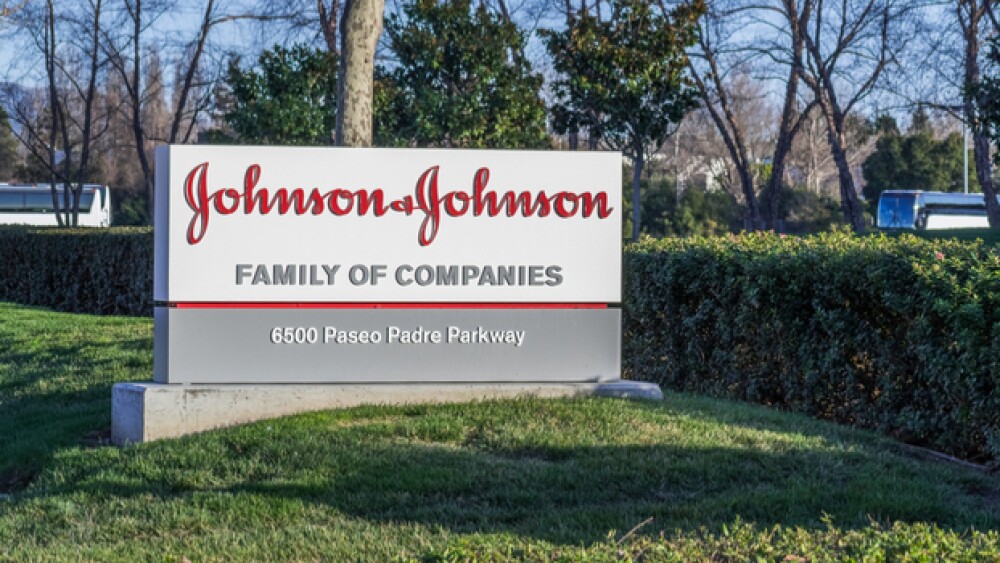Specifically, the civil subpoenas were issued to determine if the company had violated antitrust laws with its rheumatoid arthritis drug Remicade.
Sundry Photography / Shutterstock
In a regulatory filing yesterday, Johnson & Johnson reported that it had been subpoenaed by the U.S. Federal Trade Commission (FTC) as part of an investigation into contracting practices. Specifically, the civil subpoenas were issued to determine if the company had violated antitrust laws with its rheumatoid arthritis drug Remicade.
The FTC issued a civil investigative demand (CID), which is the equivalent of a subpoena.
In 2017, Pfizer filed a lawsuit against J&J, alleging that J&J’s contracts with insurance companies for Remicade were anticompetitive and intended to block sales of Pfizer’s biosimilar for Remicade called Inflectra.
A biosimilar is a generic version of a biologic drug. But, unlike a regular generic, which is a direct copycat of a branded drug, a biosimilar is “similar,” which requires an approval process similar to that of a new branded drug.
Remicade went on the market in 1998. Inflectra was approved in 2016. Remicade is an infusion used to treat chronic autoimmune disorders. It runs about $4,000 per dose or $26,000 per year. It is approved for use for rheumatoid arthritis, plaque psoriasis, Crohn’s disease and ulcerative colitis.
Pfizer argues in the lawsuit that J&J’s insurer contracts provide discounts in exchange for providing a preference to Remicade. In addition, Pfizer says the contracts only pay for Inflectra if Remicade is proved to be ineffective.
J&J denies the allegations and is battling the Pfizer lawsuit.
“As Pfizer’s complaint alleges, J&J’s unlawful conduct is designed to prevent Inflectra from being able to compete on its primary point of differentiation—price,” J&J said in a 2017 statement. “Today, Inflectra has an average selling price (ASP) that is more than 22% lower than Remicade. Despite these facts, J&J has not lost substantial volume or share of sales—counter to what should occur in a competitive market.”
In a 2017 statement about the lawsuit, Pfizer wrote, “The complaint describes how insurers originally classified Inflectra at parity with Remicade—meaning, there was no medical reason to favor Remicade over Inflectra. However, insurers reversed course after J&J threatened to withhold significant rebates unless insurers agreed to ‘biosimilar-exclusion’ contracts that effectively block coverage for Inflectra and other infliximab biosimilars. In the absence of such coverage, providers—who depend on reimbursement from insurers—are reluctant to stock biosimilars, even to service Medicare and Medicaid patients where there is widespread coverage for Inflectra. Additionally, J&J offered providers anticompetitive contracts conditioned on the providers not purchasing biosimilars to Remicade in exchange for discounts on Remicade. These anticompetitive practices are preventing physicians from trying and patients from accessing the biosimilar.”
In August 2018, a judge denied J&J’s motion to dismiss the lawsuit.
“J&J’s efforts to foreclose Pfizer from the market, as Pfizer has alleged, have led to increased prices for consumers and limited competitive options for end payers, providers, and patients,” stated district court Judge James Curtis Joiner in a memorandum.
Joiner added, “Pfizer provides detailed allegations regarding J&J’s exclusionary terms with many of the nation’s largest insurers, the incentive structure that forces end payers and providers into accepting those terms, Pfizer’s efforts to compete, including its guarantees that Inflectra would cost less than Remicade, and showed how market participants on many levels are injured from J&J’s ability to sell Remicade without having to compete with Inflectra and other biosimilars.”
At that time, a J&J spokesperson stated, “We stand by our contracts and will continue competing on value and price to help ensure patients have affordable access to Remicade. In contracting for Remicade, payers and providers have demanded, and we have provided, aggressive discounts.”





